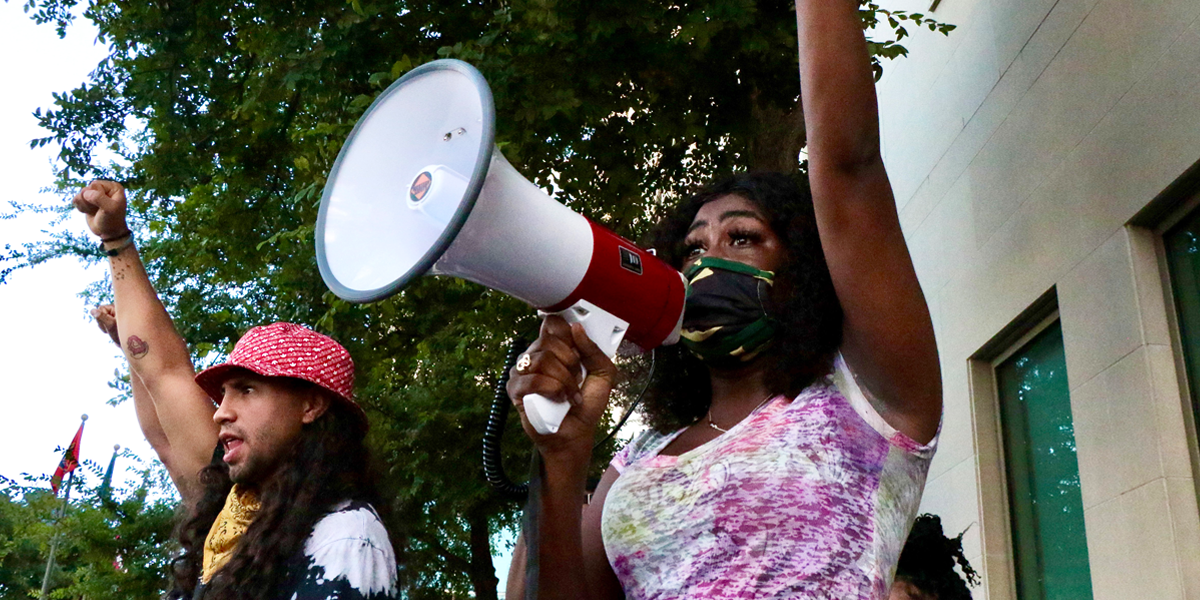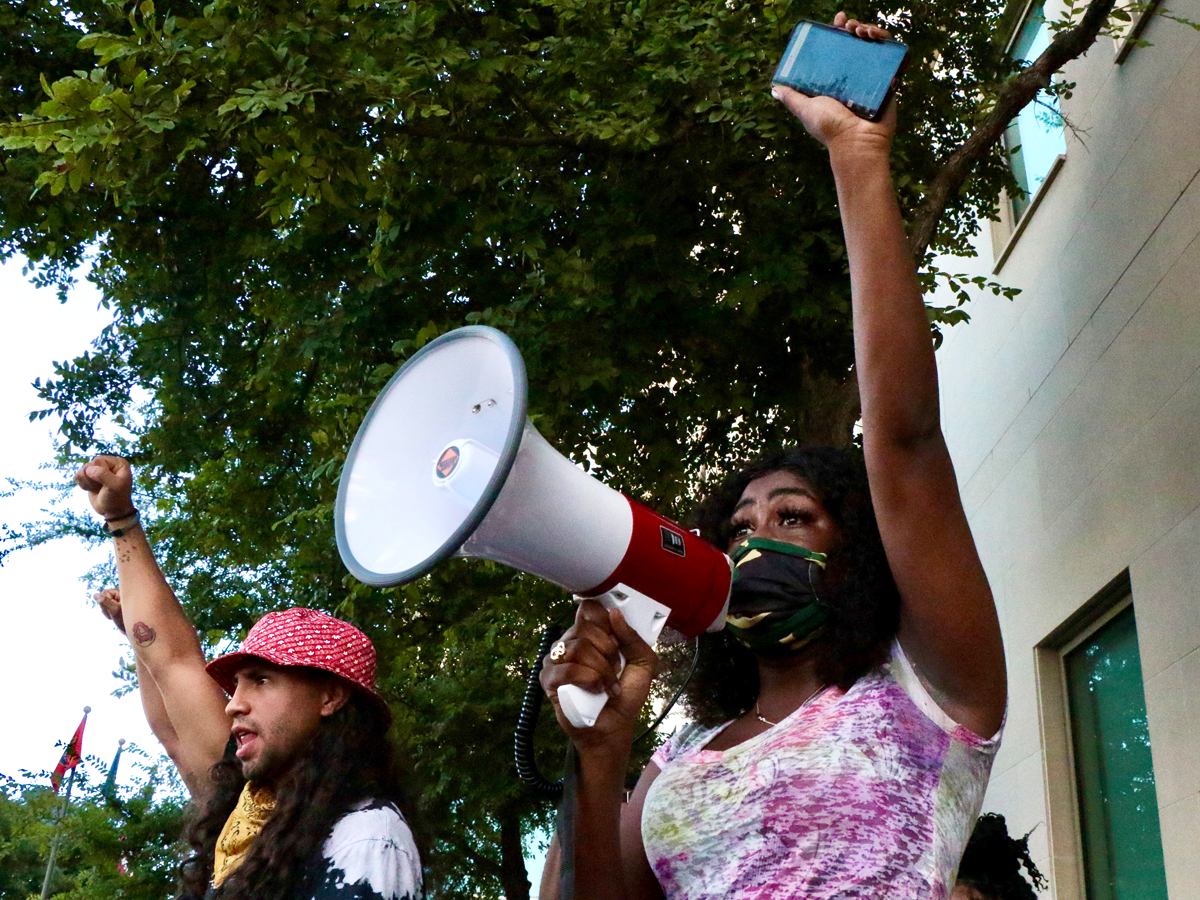
Part of the Fight

Often when a university establishes a new college, the leadership chooses the passive name the college of something—for example, the College of Business. Yet when it came time to name UTSA’s new College for Health, Community, and Policy, the preposition means all the difference in how its new dean views the college’s mission.
“We will work together to improve the community’s health via policy,” Dean Lynne Cossman says. “I want to make sure our research is community-engaged.”
In support of this mission the students and faculty of the college are active beyond the limited rhetoric of politics that can result in a better future for future generations. As Cossman has noted, the college includes the study of criminology and criminal justice, sociology, psychology, social work, public health, demography, kinesiology, and nutrition.
UTSA is committed to supporting faculty, staff, and students in their confrontation with racial bias and aggression. The university recognizes the need for continued conversations around policing and structural reforms. Here’s a sample of research being undertaken.
□ Sherri Simmons-Horton, a postdoctoral fellow, studies the critical issue of racial disparities within the child welfare and juvenile justice systems. Data shows that over 65% of children in the Texas foster care system are Black and Hispanic—a disproportionate amount compared to the U.S. population overall.
□ Michael R. Smith, a professor in the Department of Criminology and Criminal Justice who is a former police officer, has been studying the criminal justice system as a scholar for more than 25 years. His work is a leading example of how UTSA is helping fight back against systemic social failures.
□ Professor Jelena Todic’s research examines restorative justice in K–12 schools as an approach to interrupt and respond to the school-to-prison pipeline, which disproportionately impacts Black youth, and responding to associated health inequities.
□ With the help of the San Antonio Metropolitan Health District, Erica Sosa, associate dean of graduate studies in the college, is studying racial inequalities in access to health services.
□ Jeffrey Howard, in the Department of Public Health, is researching census privacy and the effect it has on minority groups.

